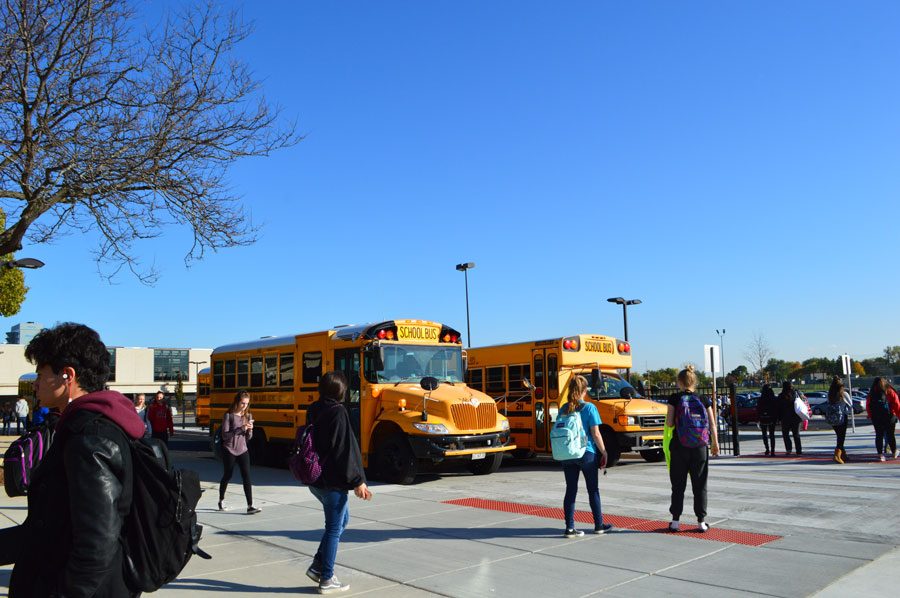Schools neglect the biological clocks of teens
April 19, 2017
Most teenagers would rather hear a tornado siren than their alarm clock.
Consequently, their parents are also familiar with ultimately having to drag their sluggish teens out of bed by the third snooze alarm.
“More than 87 percent of high school students in the United States get far less than the recommended eight to 10 hours,” the National Sleep Foundation reports.
Delaying school start times proves exceedingly beneficial to students and their families, because the public education system has disrupted the natural sleep cycles of teenagers.
“When I’m up late studying for tests, it’s super hard to get up early,” freshman Izzy Hagenbuchl says. “It’s hard to focus, because all I can think about is sleep.”
Sleep deprivation leads to serious consequences, including car accidents and lackluster academic performance, and it’s all due to students’ biological clocks.
At first the solution might seem simple—getting to bed earlier.
Some suggested methods to achieving this by The Child Mind Institute include turning off technology earlier, setting a formal bedtime, and simplifying schedules, but that’s asking teenagers to fight against their biological clocks.
Research indicates that as children go through puberty sleep cycles change, causing early risers to become night owls.
“Teens experience a so-called sleep-phase delay,” summarizes Ruthann Richter, on behalf of Stanford University. “Their circadian rhythm—their internal biological clock—shifts to a later time, making it more difficult for them to fall asleep before 11 p.m.”
“That seems pretty accurate,” freshman Leah Daly says, in reaction to the information from Stanford. “I usually don’t fall asleep until after eleven and I wake up at 6:30 a.m., which is way too early. I mean, come on people, get with the program!”
A major benefit discovered after some schools decided to postpone their first bell was the reduction of teen car accidents.
“People who sleep six to seven hours a night are twice as likely to be involved in such a crash as those sleeping eight hours or more, while people sleeping less than five hours increased their risk four to five times,” the AAA Foundation for Traffic Safety found.
Sleep-deprived students are more likely to be involved in an accident.
A study taken by Professor Robert Vorona MD, of Eastern Virginia Medical School and the Virginia Department of Motor Vehicles proves this to be true. Data was collected on drivers between the ages of 16 and 18 in counties with different high school start times (7:20 a.m. and 8:40 a.m.). Data also included the crash rates among these drivers.
The results showed “a 40 percent higher crash rate in the county where school starts earlier,” NBC News’ Emily Sohn writes.
“Having just started driving, not being able to focus on the road is a very scary and undesirable situation,” freshman Brooke Novosad says.
It is therefore crucial to delay high school start times in order to protect student drivers. In addition to impairing driving ability, sleep deprivation is taxing on a student’s academic performance.
“Researchers analyzed data from more than 9,000 students at eight high schools in Minnesota, Colorado, and Wyoming and found that shifting the school day later in the morning resulted in a boost in attendance, test scores, and grades in math, English, science, and social studies,” the public editor of the Education Writers Association, Emily Richmond, writes.
“I feel more prepared for the day and rejuvenated,” freshman Josalyn Service says about nights when she gets enough sleep. “I am better able to focus on school, not on how tired I am.”
A primary concern expressed by families over delaying school start times is transportation and other scheduling conflicts that are a result of the shift. Care for younger siblings, after school jobs, and traffic safety hazards are just a few issues.
There also seems to be a correlation between adaptability to the delay based on the family income of the student.
“Most families have a highly coordinated schedule worked out to balance the many activities of each of its members,” the National Sleep Foundation reports.
Postponing school start times might put families at a disadvantage, which could nullify any of the positive effects of extra sleep. However, there are options for families who can’t coordinate work and childcare schedules, including carpooling.
“Carpooling is very helpful,” freshman Jone Platukyte says. “I always have a ride to school, no matter what time I need to be there, even late starts.”
While it is unfortunate that the change in schedule will be difficult for underprivileged families, there is still strong evidence for the benefits of schools starting later to be ignored.
Snoozing is obviously no longer losing.
It is therefore essential that District 211 officially mandates that its high schools start no earlier than 8:30 a.m. because it is biologically necessary, safer, and healthier for students and their families.








